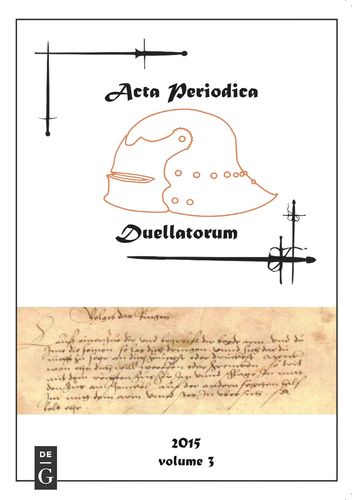Honour and Fighting Social Advancement in the Early Modern Age
DOI:
https://doi.org/10.36950/apd-2015-005Keywords:
Social advancement, honour, medieval, renaissance, war, military organisation, estate, prince, feudal law, knight, city, mercenary, duel, Fechtmeister, Fechtbuch, Fechtschule, KriegsbuchAbstract
The article considers the importance of military service in social advancement, here understood as filling the role of “prince” in feudal law and thus participating in the government of an estate, in the transition from the Late Middle Ages to the Renaissance or Early Modern Age. In the context of a city burgher or a petty noble or knight advancing into a government role, did honour require that the individual have experience in fighting – in war, military organisation and leadership? How did mercenaries figure? What role, if any, did Fechtmeister, Fechtbücher, Fechtschulen or Kriegsbücher play?Downloads
Download data is not yet available.
Downloads
Published
2015-09-19
Issue
Section
Articles
License
Copyright (c) 2015 Jürg Gassmann

This work is licensed under a Creative Commons Attribution-NonCommercial-NoDerivatives 4.0 International License.
How to Cite
Gassmann, J. (2015). Honour and Fighting Social Advancement in the Early Modern Age. Acta Periodica Duellatorum, 3(1), 139–181. https://doi.org/10.36950/apd-2015-005



